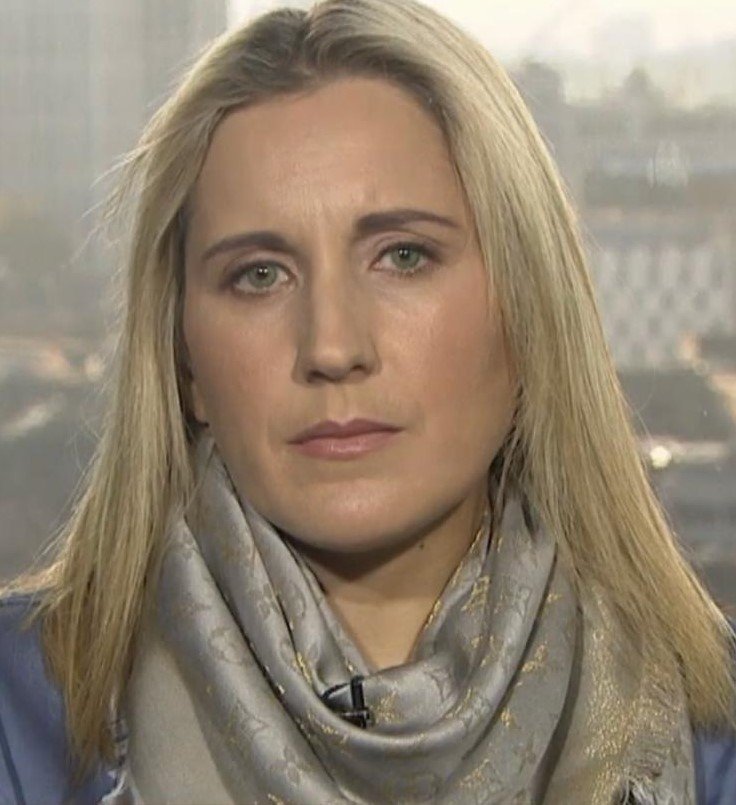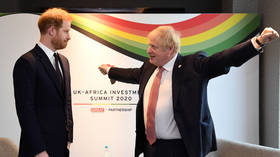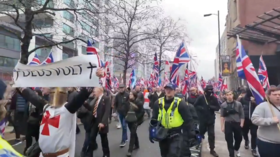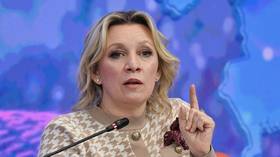Hour of reckoning looms for Lebanon as violent anti-government protests hit Beirut
As smoke rises over Lebanon’s capital Beirut, scenes of utter chaos stand in sharp contrast to protesters’ once-peaceful calls for reforms. With the Lebanese all but out of patience, the country now sits on the edge of civil war.
Hundreds were injured this weekend during violent clashes which pitted protesters against security forces in Beirut as Lebanon further slips into civil unrest, underpinned by calls for a complete institutional overhaul.
Months into an uprising which sought to unite a country otherwise defined along ethnic and sectarian lines, Lebanon – and more so its capital are now centre stage for violent confrontations between a system characterised by an antiquated neo-colonial worldview and the hopes of a people wishing to redefine their identity through national unity and cohesion.
At its heart, Lebanon’s crisis is a great institutional shakedown of a system which, by the very nature of its structure, can no longer sustain the aspiration of its people – who do not wish to be boxed in on account of their faith, origins or even the expectations foreign powers may still hold in regards to their assumed political alliances.
Also on rt.com Water cannon, tear gas & scores injured as Lebanese protesters clash with police (VIDEOS)Story of unrest
With every call for change protesters have made since October 2019, it is the death of the Taif Accord which the Lebanese are clamoring for. The agreement further asserted the 1943 National Pact and forever locked Lebanon in a political system underpinned by sectarian limitations and quotas.
And though in theory this system did offer a modicum of stability at a time when Lebanon was ravaged by civil war, offering political representation to Lebanon’s many religious groups through the strict division of parliamentary seats and governmental positions, it quickly devolved into a tool for powerful elites to monopolize the economy.
Thus Lebanon’s very own brand of ethnic clientelism was born, a dangerous institutional cornerstone to lean on if we consider just how many regional wars have been waged on account of competing theologies.
President Michel Aoun, a Maronite Christian who built a career on his alliance with the powerful Hezbollah – the Shia Muslim resistance group headed by Sayyed Hassan Nasrallah – while playing up his Christian background to increase his political base and appeal to foreign powers, embodies Lebanon’s idiosyncratic political dissonance. Rather than operate on the basis of political ideologies, Lebanon was taught to function as a sectarian microcosm, while striving to imagine itself as a liberal democracy. Reality was going to hit home sooner, rather than later.
Then came the great undoing of October 2019. In hindsight, Lebanon’s uprising was inevitable. In the face of rising unemployment, environmental degradation reaching cataclysmic levels (the Beirut trash crisis), and Lebanon’s national debt crisis, the country’s institutional floor came crashing down around its elite. Needless to say, such undoing very much lifted the veil on Lebanon’s true socio-political faultlines.
The division of Lebanon’s post-war political spoils on the basis of a bankrupt notion of confessional and sectarian equality has, ultimately, driven the nation to a complete socio-economic state of paralysis.
With little-to-no leeway left to accommodate change, and without much political legitimacy to affirm their promises of coming reforms, Lebanon’s ruling elite has now chosen to play its last cards – violence and armed repression. Lebanese medical groups said at least 377 people were injured on Saturday, including 80 who were taken to hospital.
NEW POST: Brutal Crackdown on Protesters #Lebanon’s riot police used excessive force against largely peaceful protesters in downtown Beirut on Jan 18, in the most brutal crackdown since the nationwide anti-government protests began on Oct 17. https://t.co/CxKwRUUnA3pic.twitter.com/bg4Sn6KMPp
— Aya Majzoub (@Aya_Majzoub) January 19, 2020
President Aoun called on the military last weekend “to protect the safety of peaceful protesters and of public and private property, and to restore calm to central Beirut,” the president’s office said.
Readers will note that, as protesters have demonstrated their desire to sit above and beyond all manners of sectarianism so that they could instead define their movement in national cohesion and solidarity, the Old Guard has worked to reiterate the sectarian identities of what they perceive as their respective ‘political bases’ to better shield themselves from criticism, and thus secure their longevity in power.
Anti-sectarianism v ethnic clientelism
At a time when Lebanon’s citizens are working to free themselves from the shackles of sectarianism by declaring their identity Lebanese before all else, so that they can remain united in their core demands – such as the formation of a political accountable and competent economic management system, the independence of the judiciary in the pursuit of long-pending corruption cases, and electoral reforms designed to move beyond sectarian allocations – to play such identity politics could prove a dangerous bet indeed.
As Alexander Henley writes for Carnegie Endowment for International Peace: “Lebanese religious leaders are often treated as authentic representatives of their sects and are given broad powers over religious affairs… these figures do not incite sectarian hatred, and even aim to reduce it, but the way they are empowered and their monopoly on spiritual matters inhibit social integration among various religious communities and reinforce sectarian divisions.”
If Lebanon’s political corridors are dark and unintelligible to most, experts included, Lebanon’s crisis is not.
Corruption, the insolvency of the state institutions through social injustice and utmost incompetence quite simply led to a dissolution of the social contract, hence the deluge of anger poured on the state by the Lebanese people. Lebanon is today a country in defiance, demanding its political history to be written anew; it is likely the wind of change will not limit itself to the country’s borders, but rather inspire broad regional change on the basis of true political equality and accountability before the law.
I cannot help but recall the words of Samir Kassir, a famous Lebanese writer who back in 2005 said: “When the Arab spring starts in Beirut, it will herald the blooming of roses in Damascus.” And though Syria may have seen enough turmoil for generations to come, the spirit of the quote still stands: Lebanon’s revolutionary spirit will ultimately carry throughout the region as the embodiment of a wider desire for change.
We would do well to look at today’s events through the historical prisms of 2005, 2011, and 2019… Lebanon’s revolutions are but one continuous call for a complete institutional revamp, one which is unlikely to be tamed – especially not by the barrel of a gun.
Also on rt.com Lebanese president calls on ARMY to intervene as massive protests turn violent in Beirut (PHOTOS, VIDEO)Evidently change will not come easy. After all, Lebanon’s sectarian leadership goes back centuries, as far as the Ottoman Empire in fact. Beyond a simple religious power-sharing agreement, Lebanon’s system extends to all state institutions, justice, the economy, and of course politics. To change it would be to uproot and dismember Lebanon’s socio-political tradition in its entirety. But then again, it could be that the nation will have little choice in the matter, since a return to the status quo will only delay the inevitable.
Although the elite might find some degree of comfort in the belief that it can ‘wait it out’, expecting that the Lebanese people will run out of anger and normality will resume, President Aoun’s decision to call on the military could prove one step too far. If this weekend’s descent into chaos is anything to go by, Lebanon’s ruling class might just have precipitated its fall from grace.
Like this story? Share it with a friend!
The statements, views and opinions expressed in this column are solely those of the author and do not necessarily represent those of RT.














